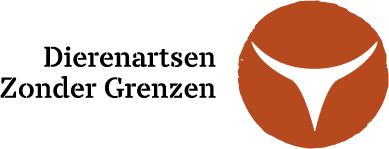Vétérinaires Sans Frontières-NL invites you! The 19th of March we are organizing the pastoralist film festival! In cooperation with Wageningen University, we will take you into the world of pastoralism. Through a documentary in the DocuScience program, you will learn more about the challenges and wonderful lifestyle of pastoralists. Read on quickly to learn more about this event!
Time and location
18:30 Walk-in Auditorium, Omnia
19:00 Introduction by Simone Vuijk (coordinator Vétérinaires Sans Frontières-NL)
19:15 Start documentary
20:00 After talk and discussion with various speakers from Wageningen University
20:30 End program
20:30 - 21:00 (optional) Free drink at club Novum
Becoming enthusiastic? You can sign up here!
What is pastoralism?
Pastoralism is a form of animal husbandry in which herders graze domesticated animals such as cattle, goats, sheep, camels and others on natural grasslands or pastures. It is often associated with nomadic or semi-nomadic lifestyles, where herders travel around with their herds to find adequate food for their animals.
This form of animal husbandry is found in several variations worldwide, mainly in areas where environmental factors such as drought, poor soil, extreme temperatures, or lack of water make crop production difficult or impossible. Because they operate in such challenging environments, pastoral communities are particularly susceptible to the effects of climate change. Nevertheless, pastoralism remains a common practice in several countries, including Uganda and Tanzania.

The film festival
The Perspectives on Pastoralism Film Festival seeks to deepen understanding of how diverse peoples across the world gain their livelihoods from extensive livestock production.
The relationships of pastoralist people and animals and their food production systems reflect an intimate intertwining of culture, economy, and ecology in highly variable environments such as drylands and mountainous regions. In such environments, mobility of animals plays a key role.
More information about the pastorlist film festival? Click here!
Documentary
On The 19th of March we will show two different short films that make up one documentary. The films being shown are:
Cowherds of the Savannah: The Karamojong are pastoralists in northeastern Uganda and keepers of their landscape. This film shows how the Karamojong herders make productive use of the highly variable landscape, turning even the driest plant fibers into meat and milk, while at the same time dealing with frequent animal disease outbreaks and tribal conflicts in the region.
Goat Breakfast: The area near Mount Meru in Tanzania is increasingly affected by drought. Maasai herdsman Paulo must find creative ways to feed his family. In the morning, he seeks breakfast for his goats so they can produce milk for their own goat lambs and for Paulo's young son.

Program
The evening will take place in the Auditorium. This is a hall in Omnia, Wageningen University. First there will be a short introduction by Simone Vuijk on behalf of Vétérinaires Sans Frontières-NL. Then you will be shown the documentary and after that there will be room to ask questions. A panel has been assembled for the discussion. Among others we have Dominic van Asseldonk, a student who recently conducted his research among pastoralists, and Achiba Gargule who himself is a pastoralist and researcher!
Everyone is welcome and the entire evening is free.You can register here!
Docuscience
Docuscience is a new program at Wageningen University. Employees of Wageningen Campus can share insights here about all the work going on. New perspectives will be explored through interesting documentaries that encourage conversation.
Especially for DocuScience, restaurant Novum, in Omnia, is offering a DocuDinner The DocuDinner starts at 5:30pm. For 17.50 euros you will be provided with a delicious vegetarian main course, with fries and salad. Reservations are required and can be made via welkom@restaurantnovum.nl. Please mention DocuScience in the email. A seat will be reserved in the auditorium for dinner guests, so you are guaranteed a seat at the documentary.
Good to know
The entire evening will be spoken in English. The documentary is spoken in English or provided with English subtitles.


